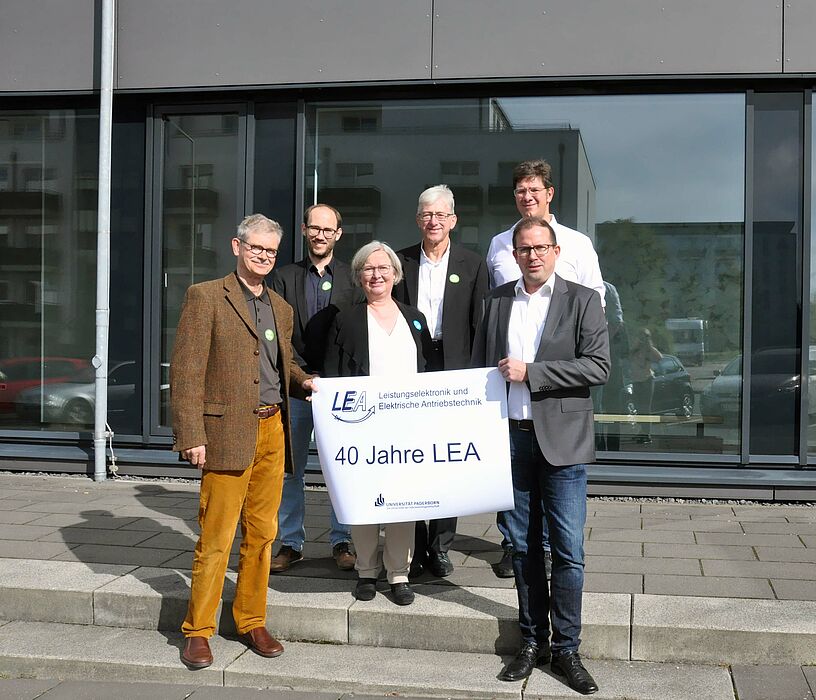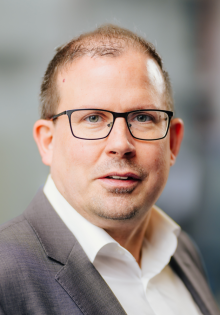Anniversary celebration focuses on highlights from research and development
40 years of "Power Electronics and Electrical Drive Technology", 40 years of LEA: The joy on the occasion of the anniversary was great. Numerous former employees and guests from science and industry came to the University of Paderborn for the ceremony last Friday, October 1, to congratulate the team around Prof. Dr. Joachim Böcker, head of the LEA, and to look back on exciting years.
"From the very beginning, the LEA has been dedicated to particularly important socially relevant topics that set significant impulses for the future. In addition, the LEA is excellently networked nationally and internationally, so that the course is set for innovative applications in the future topics of power and drive engineering," said Simone Probst, Vice President for Business and Human Resources Administration at the University of Paderborn.
The LEA department was established from 1981 by Prof. Dr.-Ing. Horst Grotstollen, and at the same time the modern laboratory area in the newly built experimental hall was occupied. Already during this time, long-term research co-operations with industrial partners were established, which still exist today. At that time, research projects revolved around self-adjusting three-phase drives for industrial applications as well as power electronic modules for the power supply of telecommunication and computer systems. In 2003, Prof. Dr.-Ing. Joachim Böcker took over as head of the department. New focal points developed, especially in the automotive sector: drives for electric vehicles, power electronic converters for charging battery vehicles and for converting the various electrical voltages in the on-board network of an electric vehicle became special fields of the LEA.
In the course of the past years, the department was significantly involved in large research networks such as the "New Railway Technology Paderborn", the special research area "Self-Optimizing Systems" and the top cluster "Intelligent Technical Systems (it's OWL)". The energy transition promoted further projects - without power electronics, the integration of renewable energies is not possible. Currently, a microgrid laboratory is being set up with funding of around 3.5 million euros from the EFRE.NRW program for research into the interactions in future power grids. Power electronics technology is also advancing with new semiconductor materials. The German Federal Ministry of Education and Research (BMBF) approved funding of around one million euros for the innovative laboratory landscape required for this as part of the ForLab infrastructure initiative. Böcker: "Power electronics is now a key technology in our modern industrial society. There is so much to do, let's tackle it."


